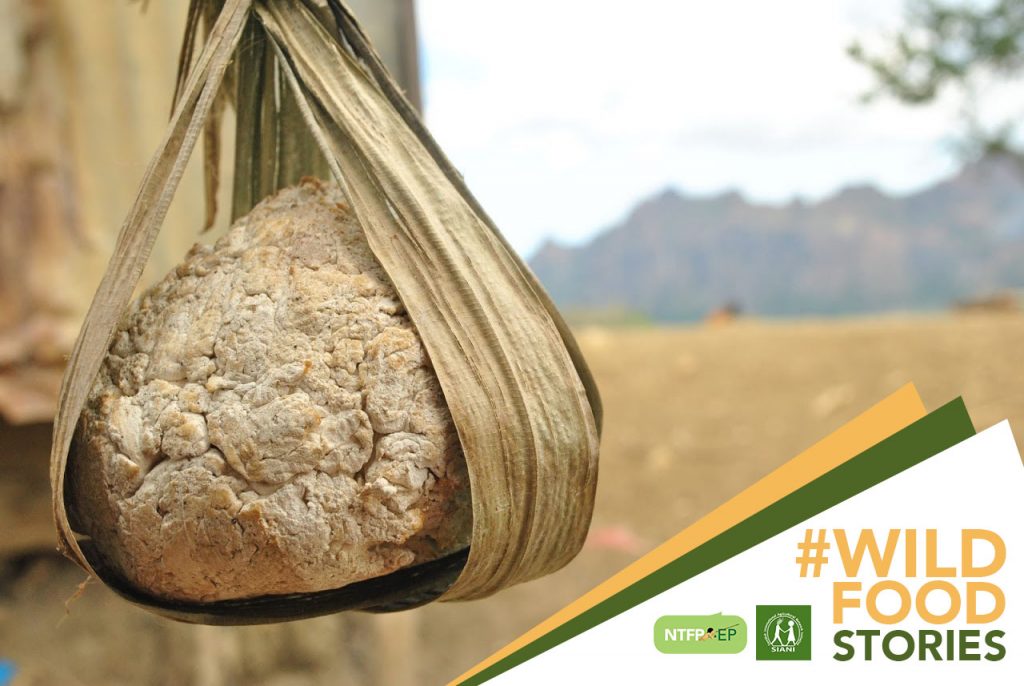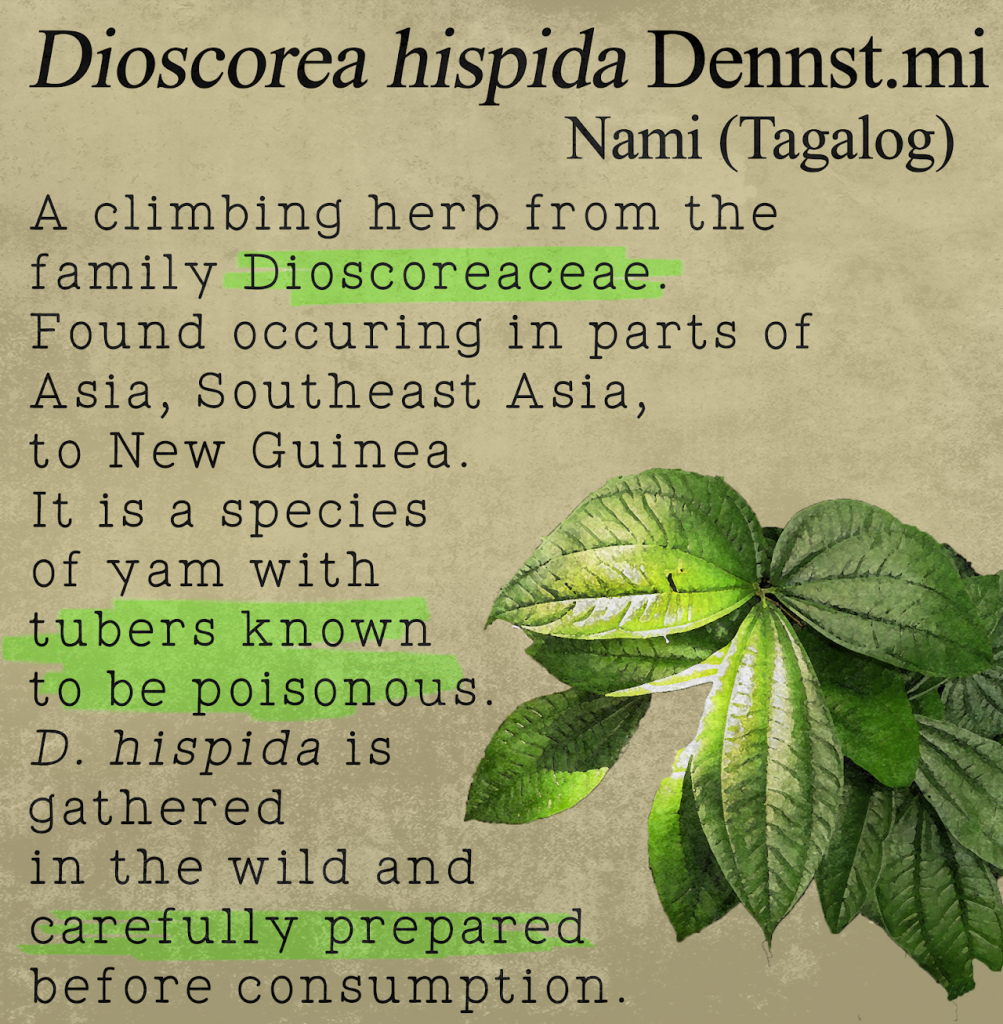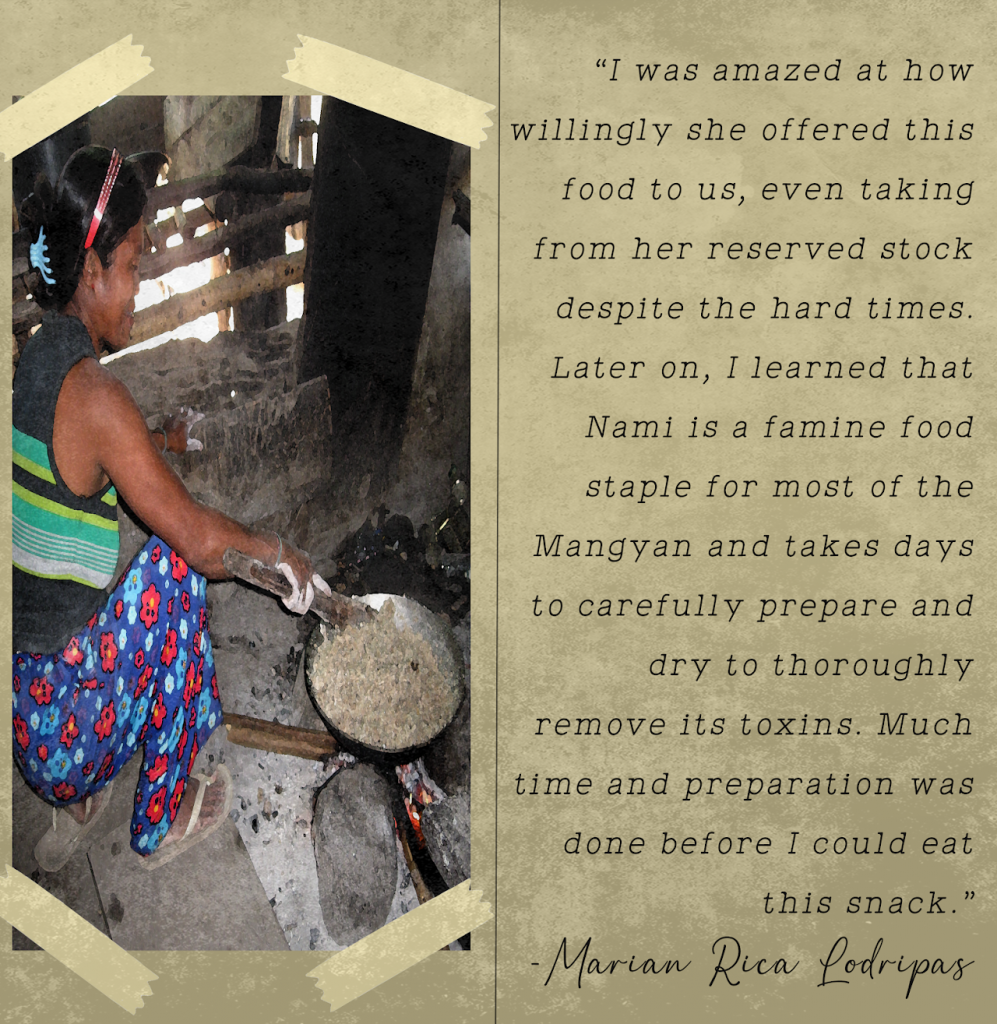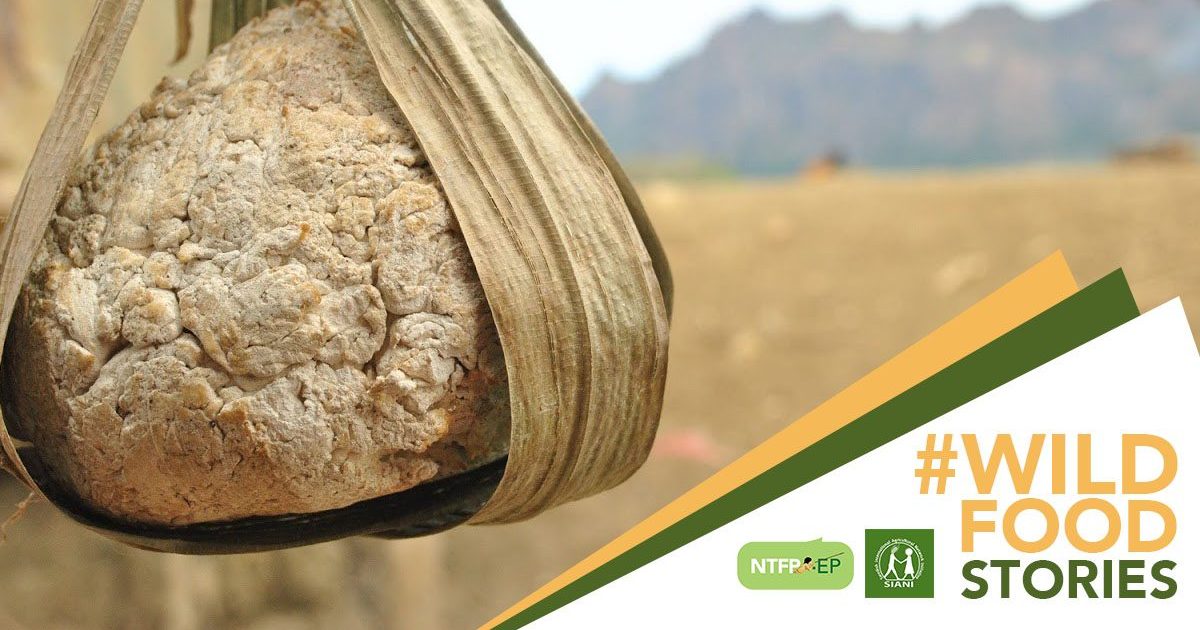
We trekked to an Alangan village in Sablayan, Occidental Mindoro on a very hot afternoon for a mapping activity. Upon reaching the place, I felt nauseous. I decided to stay in a hut and just wait for my colleagues who went on to go to a site to get GPS coordinates. Thankfully, the village elder allowed me to rest in their house as I was not really feeling well.
I fell asleep while sitting in a corner and after a while an elder woke me up and offered me nami. She was so apologetic while explaining to me that she can only offer me boiled nami and not rice or any other snack, because food was hard to come by since it was drought season. She told me it was the only available food in her house. At my state at that time, I remember thinking that the taste of nami wasn’t that pleasant for me, or perhaps my palate was just not used to it. I was touched at her thoughtfulness and kindness because she still offered me something to eat even though times were hard. When my other colleagues came back from their trek, she also offered them nami.

I was amazed at how willingly she offered this food to us, even taking from her reserved stock despite the hard times. Later on, I learned that nami is a famine food staple for most of the Mangyan and takes days to carefully prepare and dry to thoroughly remove its toxins. Much time and preparation was done before I could eat this snack!
Many years have passed, and I may have forgotten the taste of nami, but I still remember that day so clearly. At that time, it was not only my stomach that was filled, but also my heart. The village elder’s gesture of offering me food and eating with me was food not just for my body, but also my soul.

Marian Rica O. Lodripas is a full-time development worker based in Quezon City, Philippines. She has Bachelor’s degrees in Sociology and in Anthropology from the University of the Philippines. She was part of a five-year consortium project in Occidental Mindoro and one of the assigned project staff to assist the Mangyan IP groups in their CADT applications and community development planning.
#WildFoodStories is a co-initiative of NTFP-EP Asia and the Swedish International Agriculture Network Initiative.




